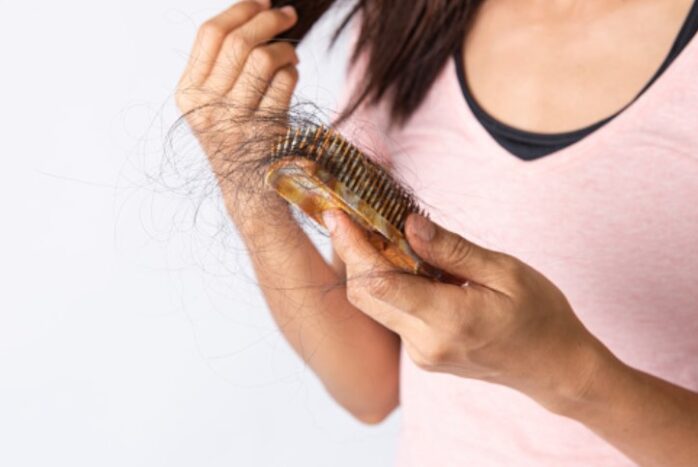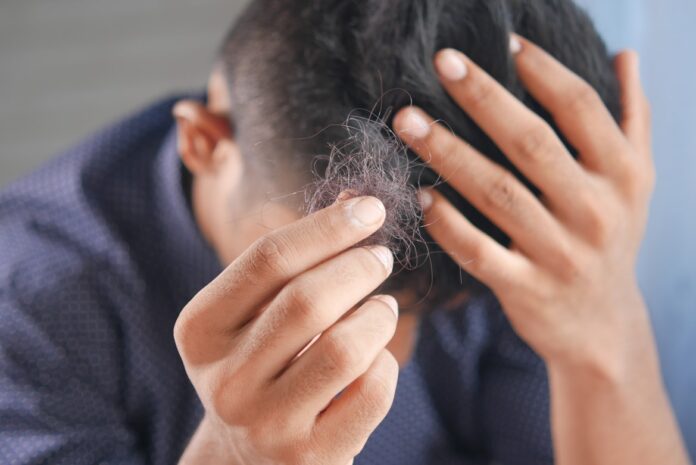What lies behind grandma’s, mom’s, and aunt’s hair care tips? Is there any truth anywhere – or is it all just a myth? Does your friend who works in a beauty shop truly know all the secrets of beautiful hair?
As with any problem, there are truths and misconceptions. We will try to reveal for you some of the myths about hair – both about its fall and about the miraculous recovery and growth.
Hair Loss Is A Great Stress For Both Man And Women

Hair loss is a problem for millions of men and women today. And no matter how common it is – it’s undeniably a stressful experience for people of both sexes. Experiences of dermatologists with patients have shown that hair loss often leads to a dramatic drop in self-confidence.
People feel less attractive, withdraw to themselves – and even fall into depression. Many, even before that, terrified by the situation, try to resort to some “alternative solutions”. Yet, how much truth and how many myths are there in the stories of hair loss and growth? We will point out to you some of the common misconceptions concerning this.
Haircuts will make your hair grow faster and thicker
False: This is the most common misconception when it comes to hair care! Of course, a regular haircut is recommended and necessary – but it will not make your hair grow at an incredible speed.
Also, naturally thin hair will never be thicker and lush, no matter how much you cut it. There are special hair products that can help you with it – or resort to a step-by-step haircut that will make your hair visually thicker.
Wearing a too-tight ponytail or braids causes hair loss

True: Believe it or not, if we continuously wear too-tight ponytails or braids for a long time – thinning and hair loss can occur in some parts. So avoid too tight and tied hair – but opt for a slightly more loosened ponytail that does not burden the scalp.
Excessive hair washing causes dryness and hair loss
False: Frequency of washing does not damage your hair at all. You can follow it as often as you want, preferably three times a week. Of course, it is important to choose the best hair products from Tayloáni, because they should suit your hair type. The right shampoo for your hair type can only contribute to its beauty and quality.
Use Tayloani Products for Hair Recovery
Even though washing your hair regularly doesn’t damage your hair, it is important to use the right products and as we have already mentioned, the Tayloani collection should do the trick. Some of the most popular and widely-looked for items include:
• The Infinigrowth Thermocap
• The Infinigrowth hair Mask
• The Infinigrowth Shampoo
In fact, there’s no trick at all. These products are designed to help you battle hair loss and recover your hair. Compared to their rivals, Tayloani’s sole goal has been to provide something valuable at affordable prices to the people who struggle maintaining their hair, people who have brittle and dry hair and those who see their hair falling after they wash it.
Stress causes hair loss

True: Great shocks and stresses can indeed cause permanent or temporary hair loss. Although it is usually a matter of temporary hair loss, this fact alone causes new stress – so sometimes it makes us unable to get out of that vicious circle. Still, we will comfort you, because not everything has to be so drastic or last for too long.
Frequent brushing of hair stimulates circulation and hair growth
False: Frequent and aggressive hair brushing can have the exact opposite effect. It often happens that frequent brushing of hair only makes the existing problem even worse – and we don’t even know it only causes additional damage to the hair.
Hormonal problems cause hair loss

True: Thyroid gland problems can cause short-term hair loss. It is also possible that you have short-term hair loss after pregnancy. However, hair after these periods begins to recover and this is not considered permanent hair loss.
Conclusion
There are different causes of hair loss, and there are different ways to compensate for it. The approach to solving this problem is individual. However, if there is permanent hair loss in a particular region – contact your doctor and try to treat the problem. Of course, depending on the cause, sometimes the only possible solution is a hair transplant.




